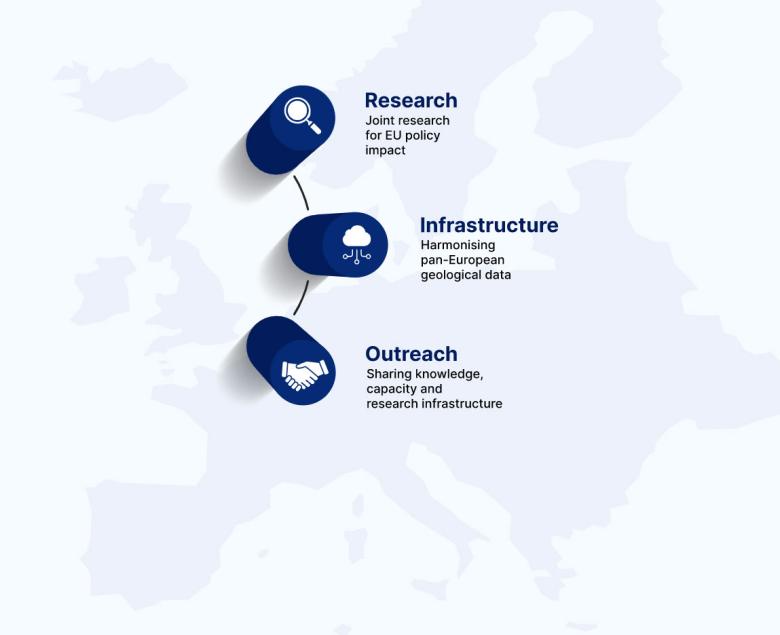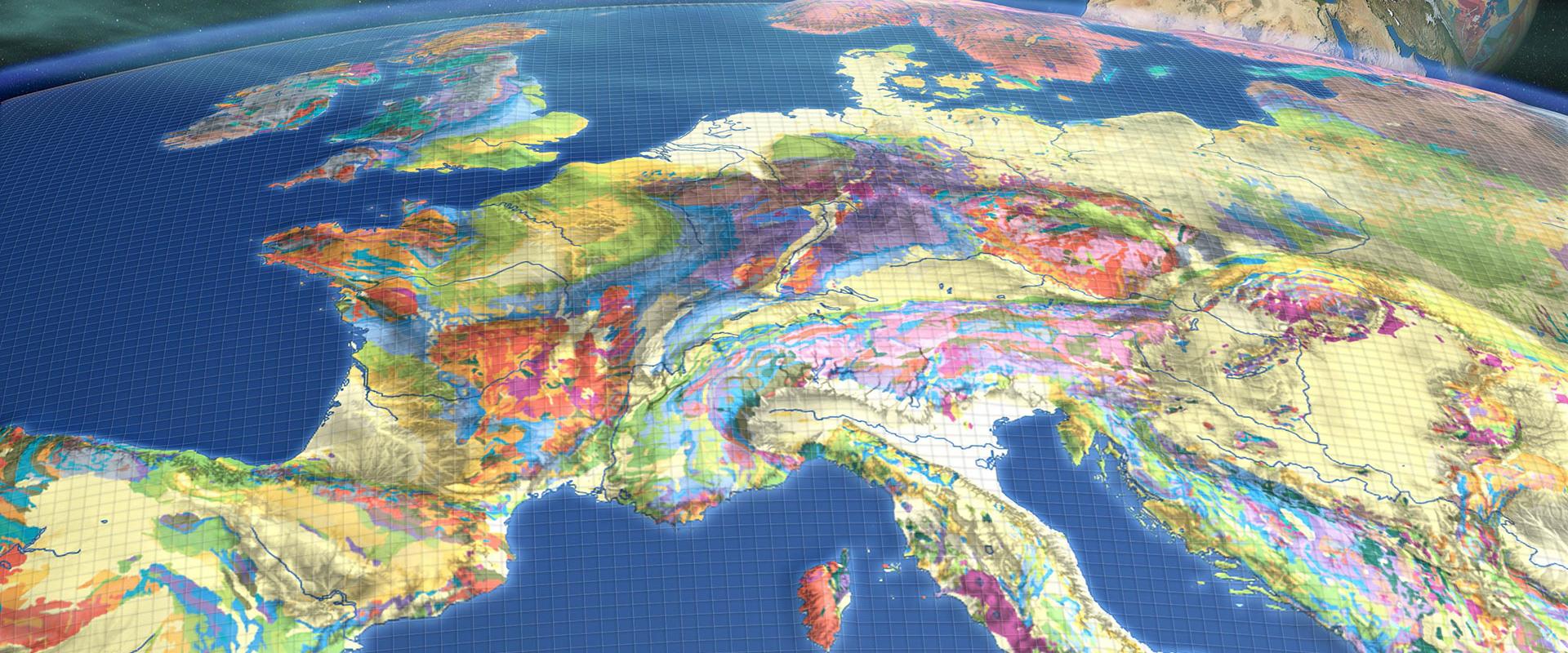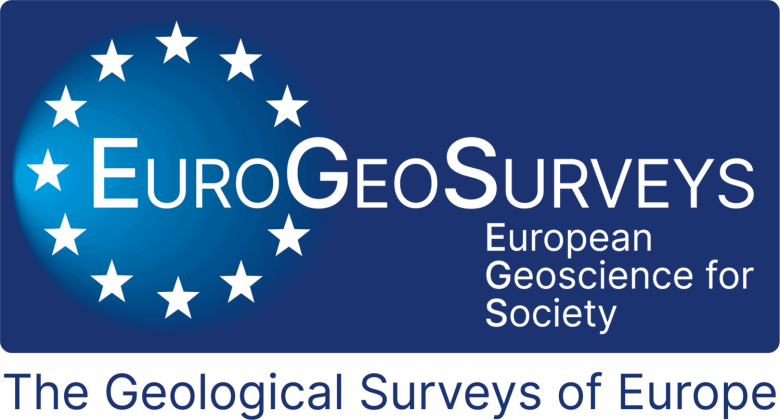For many years, BRGM has been a driving force behind European construction in the field of Earth Sciences and participated in the creation of EuroGeoSurveys (EGS), the non-profit association of European geological surveys (with 37 members), which has just celebrated its 50th anniversary. Founded in Orléans, EuroGeoSurveys is now based in Brussels, close to the European Commission.
Christophe Poinssot, Deputy Managing Director of BRGM, has just taken over the presidency of EuroGeoSurveys for two years.
The EuroGeoSurveys strategy is currently under review and a new strategy is to be adopted during BRGM's mandate as President of the association.

EuroGeoSurveys establishes a common European geological knowledge base and, together with its members, provides a unified geological service to Europe.
© EuroGeoSurveys
BRGM, a founder member of EuroGeoSurveys, the Association of European geological surveys
Work on building a European geological research network began when the Western European Geological Surveys (WEGS) association was set up in Orléans (France), in 1971. Through this first network, comprising 21 foreign geological surveys (from Western Europe, Scandinavia, Cyprus, Greece, etc.), a number of thematic working groups were set up to encourage the sharing of experience and develop joint projects.
BRGM, which was already very committed, wanted to strengthen its involvement in international cooperation. Together with other geological surveys, it set up a new European network "EuroGeoSurveys" at the end of the 1990s, after the fall of the Berlin Wall. This association aims to respond to the needs of European institutions and is only open to European Union members.
A common European geological knowledge base, a unified geological survey
The EuroGeoSurveys goals are to:
- promote the contribution of geological scientific disciplines to EU affairs and policy programmes,
- provide a permanent network between the European geological surveys and a common, but not single, gateway to each member and their national networks,
- deal jointly with European problems of common interest in the fields of geological science,
- publish, or have its members publish, technical opinions as input for EU institutions.
To this end, EuroGeoSurveys is establishing a common European geological knowledge base and, together with its members, is providing a unified geological survey to Europe, based on:
- joint research on issues that affect EU policies,
- the harmonisation of pan-European geological data,
- sharing of knowledge, capabilities and infrastructure.
As the French geological survey, BRGM, which helped organise the European geological research space, has already presided over EuroGeoSurveys twice, in 1999 and 2005.
The challenges of the 2023-2024 BRGM Presidency
BRGM plays a major role on the European scene. It has been involved in successive European Union Research and Development Framework Programmes (FPs) and since FP1, it has contributed to more than 160 projects, most of them collaborative, over the past 20 years. It also helps shape EU public policies, liaising with public authorities, private business and research institutions. BRGM is involved in projects funded by the European Regional Development Fund (ERDF) or through its INTERREG regional cooperation programme.
Recent events have spotlighted:
- the need to accelerate the energy transition, which was already high on the agenda with the European Green Deal and the goal of a climate-neutral European economy by 2050,
- the renewed interest in strengthening economic sovereignty.
In this context, EuroGeoSurveys, as the network of EU geological surveys, has a key role to play on the European scene:
- The subsurface plays an important role in accelerating the ecological transition as well as in increasing European sovereignty in the fields of energy (geothermal energy, energy storage, etc.) and mineral resources (EU supply lines, joint EU mineral diplomacy, etc.).
- The preservation of the environment is recognised as a crucial and essential objective for the promotion of sustainable development.
A review of EuroGeoSurveys' strategy planned as part of BRGM's mandate
By supporting the European Commission and EU policy on subsurface issues, BRGM and the 36 other national geological surveys through EuroGeoSurveys are committed to enabling the optimal use and maximum protection of the subsurface. As the EU's acknowledged scientific partner, EuroGeoSurveys aims to provide knowledge about the subsurface, to ensure firm foundations for a sustainable future for Europe. The aims are to:
- support the conservation and management of natural and strategic resources,
- support the transition to clean energy and the fight against global climate change and ways of adapting to it,
- improve the safety, security and well-being of European citizens,
- develop Europe's digital twin for the subsurface.
By engaging in the transfer of scientific knowledge to society to address the EU's societal challenges, EuroGeoSurveys aims to play a key role in the dissemination of scientific knowledge about the subsurface and to advise the European institutions on subsurface-related policies.
In an uncertain world, it is essential to act quickly and EuroGeoSurveys has decided to accelerate the revision of its strategy by working closely with the European Commission's Directorates-General to strengthen our capacity to create added value for the EU. With more than 10,000 experts from 37 countries, with a dynamic pan-European information system, EuroGeoSurveys is committed to supporting the development of the EU's economic and energy sovereignty and to accelerating the Green Deal.








